News
Browse the articles below to learn more about our faculty’s latest achievements, awards and honors.
 12.20.2024The use of active surveillance and watchful waiting increased from 13.2 percent in 2010 to 53.8 percent in 2020 among patients with intermediate-risk prostate cancer, according to a recent study published in JAMA.
12.20.2024The use of active surveillance and watchful waiting increased from 13.2 percent in 2010 to 53.8 percent in 2020 among patients with intermediate-risk prostate cancer, according to a recent study published in JAMA.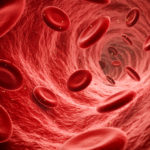 12.16.2024A new blood test may help reduce unnecessary prostate biopsies and can detect prostate cancer with similar sensitivity to standard screening in patients across racial and ethnic groups, according to a recent study published in the Journal of Clinical Oncology.
12.16.2024A new blood test may help reduce unnecessary prostate biopsies and can detect prostate cancer with similar sensitivity to standard screening in patients across racial and ethnic groups, according to a recent study published in the Journal of Clinical Oncology. 12.09.2024Northwestern Medicine investigators have discovered new molecular mechanisms underlying DNA repair dysregulation in cancer cells, findings that may inform the development of new targeted therapies for patients that have become resistant to standard treatments.
12.09.2024Northwestern Medicine investigators have discovered new molecular mechanisms underlying DNA repair dysregulation in cancer cells, findings that may inform the development of new targeted therapies for patients that have become resistant to standard treatments.- 11.01.2024In this episode of Better Edge, Hiten D. Patel, MD, explores his groundbreaking research on harnessing artificial intelligence to enhance the accuracy of prostate cancer detection and staging. Dr. Patel shares insights into the transformative potential of AI in revolutionizing diagnostic precision and improving patient outcomes in prostate cancer care.
 09.30.2024A new Northwestern Medicine study suggests using an alternative approach to prostate biopsy is as effective at detecting cancer as the current approach, but without the risk of infection or need for prophylactic antibiotics.
09.30.2024A new Northwestern Medicine study suggests using an alternative approach to prostate biopsy is as effective at detecting cancer as the current approach, but without the risk of infection or need for prophylactic antibiotics. 09.23.2024In this episode of Speaking of Urology®, Robert E. Brannigan, MD, discusses recent updates to the AUA/ASRM guidelines on male infertility with Juan J. Andino, MD, MBA. They highlight three key changes: lowering the sperm concentration threshold for Y chromosome microdeletion testing, adding pelvic MRI as an option for suspected ejaculatory duct obstruction, and using testicular sperm in cases of elevated sperm DNA fragmentation. Additionally, they discuss other updates, including when to evaluate males with normal semen analysis, avoiding exogenous therapy for fertility, and the use of scrotal ultrasound.
09.23.2024In this episode of Speaking of Urology®, Robert E. Brannigan, MD, discusses recent updates to the AUA/ASRM guidelines on male infertility with Juan J. Andino, MD, MBA. They highlight three key changes: lowering the sperm concentration threshold for Y chromosome microdeletion testing, adding pelvic MRI as an option for suspected ejaculatory duct obstruction, and using testicular sperm in cases of elevated sperm DNA fragmentation. Additionally, they discuss other updates, including when to evaluate males with normal semen analysis, avoiding exogenous therapy for fertility, and the use of scrotal ultrasound. 09.20.2024
09.20.2024The PREVENT trial (NCT04843566), recently published in JAMA Oncology, showed that transperineal biopsy had a lower risk of infectious complications while maintaining similar prostate cancer detection rates compared to transrectal biopsy. Senior author Edward M. Schaeffer, MD, PhD, noted that while the benefits of the transperineal approach were previously suggested, high-level category 1 evidence was lacking. The study demonstrated that transperineal biopsy without antibiotic prophylaxis is significantly associated with a lower infection risk, supporting it as a new standard of care for prostate biopsy.
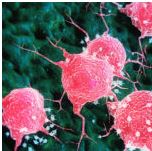 09.17.2024Immunotherapy administered before and after chemotherapy along with surgical removal of the bladder improved survival compared to chemotherapy alone in patients with muscle-invasive bladder cancer, according to a recent study published in the New England Journal of Medicine.
09.17.2024Immunotherapy administered before and after chemotherapy along with surgical removal of the bladder improved survival compared to chemotherapy alone in patients with muscle-invasive bladder cancer, according to a recent study published in the New England Journal of Medicine.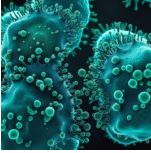 08.28.2024A Northwestern Medicine study published in Nature Communications reveals that the aberrant activation of a specific oncoprotein plays a critical role in driving tumor-promoting changes within the prostate tissue microenvironment during cancer progression. Co-led by Mindy Graham, PhD, research assistant professor of Urology, the research sheds light on a key mechanism underlying prostate cancer development and progression. These findings hold promise for the development of new targeted therapeutic strategies applicable across all stages of prostate cancer.
08.28.2024A Northwestern Medicine study published in Nature Communications reveals that the aberrant activation of a specific oncoprotein plays a critical role in driving tumor-promoting changes within the prostate tissue microenvironment during cancer progression. Co-led by Mindy Graham, PhD, research assistant professor of Urology, the research sheds light on a key mechanism underlying prostate cancer development and progression. These findings hold promise for the development of new targeted therapeutic strategies applicable across all stages of prostate cancer. 08.08.2024On the Rich Roll Podcast, Edward Schaeffer, MD, PhD, dives deep into the critical topics of prostate health, exploring the latest advancements in cancer care, the role of genetics, the impact of lifestyle choices, and cutting-edge developments in robotic surgery. This episode is a must-listen for anyone interested in men's health and wellness.
08.08.2024On the Rich Roll Podcast, Edward Schaeffer, MD, PhD, dives deep into the critical topics of prostate health, exploring the latest advancements in cancer care, the role of genetics, the impact of lifestyle choices, and cutting-edge developments in robotic surgery. This episode is a must-listen for anyone interested in men's health and wellness. 07.22.2024In this episode of "The Drive with Peter Attia, M.D.," Edward M Schaeffer, MD, PhD, Chair of the Department of Urology, delves into the complex role of testosterone in prostate cancer, shedding light on the TRAVERSE trial's insights and the androgen receptor saturation theory. He discusses the Decipher test for assessing cancer aggressiveness and offers guidance on safely administering testosterone replacement therapy to men with low-grade prostate cancer. Dr. Schaeffer also highlights recent advancements in prostate cancer therapies and biomarkers that enable more targeted and precise treatment strategies, reducing the need for broad androgen deprivation therapy.
07.22.2024In this episode of "The Drive with Peter Attia, M.D.," Edward M Schaeffer, MD, PhD, Chair of the Department of Urology, delves into the complex role of testosterone in prostate cancer, shedding light on the TRAVERSE trial's insights and the androgen receptor saturation theory. He discusses the Decipher test for assessing cancer aggressiveness and offers guidance on safely administering testosterone replacement therapy to men with low-grade prostate cancer. Dr. Schaeffer also highlights recent advancements in prostate cancer therapies and biomarkers that enable more targeted and precise treatment strategies, reducing the need for broad androgen deprivation therapy. 07.11.2024RNA modifications could serve as a therapeutic target for certain types of cancer, according to a new study published in Molecular Cell which sheds new light on the complex process underlying RNA transcription.
07.11.2024RNA modifications could serve as a therapeutic target for certain types of cancer, according to a new study published in Molecular Cell which sheds new light on the complex process underlying RNA transcription. 06.28.2024Patients with immunotherapy-resistant bladder cancer who received a novel combination treatment demonstrated improved response to treatment, according to a recent study published in Nature Medicine.
06.28.2024Patients with immunotherapy-resistant bladder cancer who received a novel combination treatment demonstrated improved response to treatment, according to a recent study published in Nature Medicine. 06.18.2024Edward M. Schaeffer, MD, PhD, outlines Northwestern Medicine's strategic growth in urology and healthcare administration, highlighting partnerships and expansions over the past decade. Under his leadership since 2015, the department has established a robust team of 18 urologists across 8 sites within an 11-hospital system serving Chicagoland, integrating quality standards, education, and marketing to ensure consistent, high-quality care across geographic regions
06.18.2024Edward M. Schaeffer, MD, PhD, outlines Northwestern Medicine's strategic growth in urology and healthcare administration, highlighting partnerships and expansions over the past decade. Under his leadership since 2015, the department has established a robust team of 18 urologists across 8 sites within an 11-hospital system serving Chicagoland, integrating quality standards, education, and marketing to ensure consistent, high-quality care across geographic regions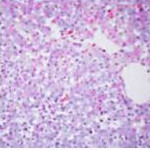 06.12.2024A dysfunctional enzyme may lead to nonalcoholic fatty liver disease in mice, according to a study published in Science Advances.
06.12.2024A dysfunctional enzyme may lead to nonalcoholic fatty liver disease in mice, according to a study published in Science Advances.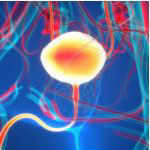 05.24.2024Patients with metastatic urothelial cancer and increased expression of the NECTIN4 gene had a dramatically better response to antibody treatment than patients with reduced gene expression, according to recent findings published in the Journal of Clinical Oncology.
05.24.2024Patients with metastatic urothelial cancer and increased expression of the NECTIN4 gene had a dramatically better response to antibody treatment than patients with reduced gene expression, according to recent findings published in the Journal of Clinical Oncology. 05.07.2024Joshua Meeks, MD, PhD, and other experts delve into the key takeaways and groundbreaking highlights from the 2024 American Urological Association Annual Meeting.
05.07.2024Joshua Meeks, MD, PhD, and other experts delve into the key takeaways and groundbreaking highlights from the 2024 American Urological Association Annual Meeting. 05.06.2024Kristin Smith, Fertility Preservation Patient Navigator at Lurie Cancer Center, provided valuable insights into fertility challenges for cancer patients as the keynote speaker at the National Comprehensive Cancer Network’s Oncology Policy Summit. The summit focused on addressing sexual and reproductive health concerns that can impact individuals with cancer both during and after treatment.
05.06.2024Kristin Smith, Fertility Preservation Patient Navigator at Lurie Cancer Center, provided valuable insights into fertility challenges for cancer patients as the keynote speaker at the National Comprehensive Cancer Network’s Oncology Policy Summit. The summit focused on addressing sexual and reproductive health concerns that can impact individuals with cancer both during and after treatment. 05.04.2024Joshua J. Meeks, MD, PhD, provides a comprehensive overview of a session held at the 2024 American Urological Association Annual Meeting titled, "Leveraging Innovation in Bladder Cancer Care: Expert Tactics for Successfully Integrating Contemporary Therapeutic Advances Throughout the Disease Spectrum."
05.04.2024Joshua J. Meeks, MD, PhD, provides a comprehensive overview of a session held at the 2024 American Urological Association Annual Meeting titled, "Leveraging Innovation in Bladder Cancer Care: Expert Tactics for Successfully Integrating Contemporary Therapeutic Advances Throughout the Disease Spectrum." 03.21.2024Edward M. Schaeffer, MD, PhD, explores the latest developments and future prospects of PSMA-PET technology in the realm of prostate cancer diagnosis and treatment. With his vast knowledge and scholarly contributions to the field, Dr. Schaeffer provides invaluable insights into the evolving role of PSMA-PET imaging, highlighting its potential to revolutionize the way prostate cancer is detected, staged, and managed.
03.21.2024Edward M. Schaeffer, MD, PhD, explores the latest developments and future prospects of PSMA-PET technology in the realm of prostate cancer diagnosis and treatment. With his vast knowledge and scholarly contributions to the field, Dr. Schaeffer provides invaluable insights into the evolving role of PSMA-PET imaging, highlighting its potential to revolutionize the way prostate cancer is detected, staged, and managed.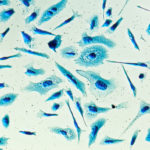 03.18.2024Two methods of prostate cancer biopsy demonstrated similar, minimal rates of infection in patients with prostate cancer, according to a recent Northwestern Medicine study published in the journal European Urology.
03.18.2024Two methods of prostate cancer biopsy demonstrated similar, minimal rates of infection in patients with prostate cancer, according to a recent Northwestern Medicine study published in the journal European Urology. 02.28.2024Joshua Meeks, MD, PhD, discuss the ongoing BCG shortage affecting bladder cancer treatment, tracing its roots to production issues in 2012 and increased demand following guideline changes in 2016. He highlight the growing use of Gemcitabine-Docetaxel (Gem/Doce) as both a salvage and primary treatment for high-risk bladder cancer due to its availability and proven effectiveness. The conversation also explores the BRIDGE trial, a critical study evaluating the efficacy of Gem/Doce, as well as several large trials investigating checkpoint inhibitors as potential alternatives to BCG.
02.28.2024Joshua Meeks, MD, PhD, discuss the ongoing BCG shortage affecting bladder cancer treatment, tracing its roots to production issues in 2012 and increased demand following guideline changes in 2016. He highlight the growing use of Gemcitabine-Docetaxel (Gem/Doce) as both a salvage and primary treatment for high-risk bladder cancer due to its availability and proven effectiveness. The conversation also explores the BRIDGE trial, a critical study evaluating the efficacy of Gem/Doce, as well as several large trials investigating checkpoint inhibitors as potential alternatives to BCG. 02.27.2024Peter N. Tsambarlis, MD, discusses regenerative therapies for erectile dysfunction, providing an overview and addressing common patient inquiries about these treatments for ED.
02.27.2024Peter N. Tsambarlis, MD, discusses regenerative therapies for erectile dysfunction, providing an overview and addressing common patient inquiries about these treatments for ED.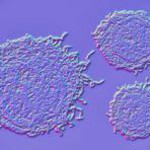 02.23.2024Northwestern Medicine scientists have discovered the Achilles heel of chemotherapy-resistant ovarian cancer — its hunger for cholesterol — and how to sneakily use that to destroy it.
02.23.2024Northwestern Medicine scientists have discovered the Achilles heel of chemotherapy-resistant ovarian cancer — its hunger for cholesterol — and how to sneakily use that to destroy it.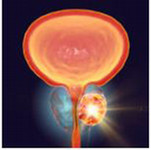 02.15.2024Increased expression of specific genes in prostate cancer patients may predict whether or not the cancer will respond well to hormone therapy, according to a new study published in Nature Communications.
02.15.2024Increased expression of specific genes in prostate cancer patients may predict whether or not the cancer will respond well to hormone therapy, according to a new study published in Nature Communications. 02.06.2024Robert Brannigan, MD, Kristin Smith, and Joshua A. Halpern, MD, MS, engage in a comprehensive discussion regarding the innovative oncofertility program at Northwestern University. As pioneers in the field, Dr. Brannigan and his esteemed colleagues shed light on the multidisciplinary approach adopted by the program, which aims to address the unique reproductive concerns of cancer patients. Through their expertise in urology, oncology, and reproductive endocrinology, they explore the latest advancements and personalized strategies for preserving fertility in individuals undergoing cancer treatment.
02.06.2024Robert Brannigan, MD, Kristin Smith, and Joshua A. Halpern, MD, MS, engage in a comprehensive discussion regarding the innovative oncofertility program at Northwestern University. As pioneers in the field, Dr. Brannigan and his esteemed colleagues shed light on the multidisciplinary approach adopted by the program, which aims to address the unique reproductive concerns of cancer patients. Through their expertise in urology, oncology, and reproductive endocrinology, they explore the latest advancements and personalized strategies for preserving fertility in individuals undergoing cancer treatment. 02.02.2024During a discussion with CancerNetwork® at the 2024 Genitourinary Cancers Symposium, Joshua Meeks, MD, PhD, Associate Professor of Urology, Biochemistry, and Molecular Genetics, as well as the Section Chief of Robotic Surgery at the Jesse Brown VA Medical Center, shared insights from his presentation on the current BCG shortage. He highlighted potential strategies for oncologists facing this scarcity, such as considering gemcitabine/docetaxel or cystectomy as alternative approaches to manage the disease when BCG supplies are limited.
02.02.2024During a discussion with CancerNetwork® at the 2024 Genitourinary Cancers Symposium, Joshua Meeks, MD, PhD, Associate Professor of Urology, Biochemistry, and Molecular Genetics, as well as the Section Chief of Robotic Surgery at the Jesse Brown VA Medical Center, shared insights from his presentation on the current BCG shortage. He highlighted potential strategies for oncologists facing this scarcity, such as considering gemcitabine/docetaxel or cystectomy as alternative approaches to manage the disease when BCG supplies are limited. 01.29.2024Hiten Patel. MD, MPH, discusses into his team's study, exploring the utilization of neoadjuvant chemotherapy before radical cystectomy for muscle-invasive bladder cancer. Motivated by observed low utilization rates in practice, the research aims to unravel the elective and eligibility factors influencing the application of this treatment.
01.29.2024Hiten Patel. MD, MPH, discusses into his team's study, exploring the utilization of neoadjuvant chemotherapy before radical cystectomy for muscle-invasive bladder cancer. Motivated by observed low utilization rates in practice, the research aims to unravel the elective and eligibility factors influencing the application of this treatment. 01.25.2024In the wake of public figures like Lloyd Austin and Ryne Sandberg confronting the challenges of prostate cancer, Shailajit Kundu, MD, takes part in an insightful conversation with NBC Chicago's Lauren Petty to provides a comprehensive exploration of the complexities surrounding prostate cancer. Dr. Kundu discusses the advancements in treatment of prostate cancer, the importance of early detection, and the impact on both patients and their communities.
01.25.2024In the wake of public figures like Lloyd Austin and Ryne Sandberg confronting the challenges of prostate cancer, Shailajit Kundu, MD, takes part in an insightful conversation with NBC Chicago's Lauren Petty to provides a comprehensive exploration of the complexities surrounding prostate cancer. Dr. Kundu discusses the advancements in treatment of prostate cancer, the importance of early detection, and the impact on both patients and their communities.
